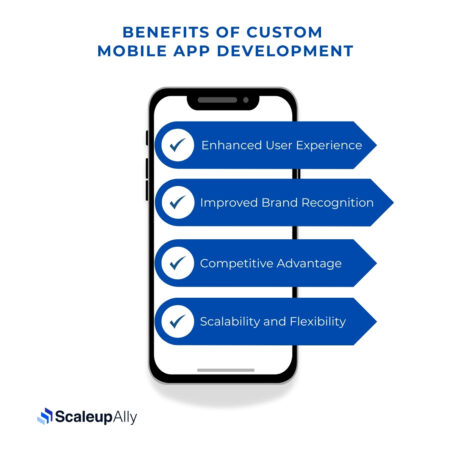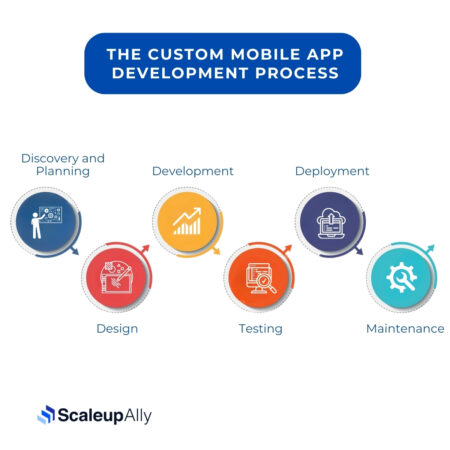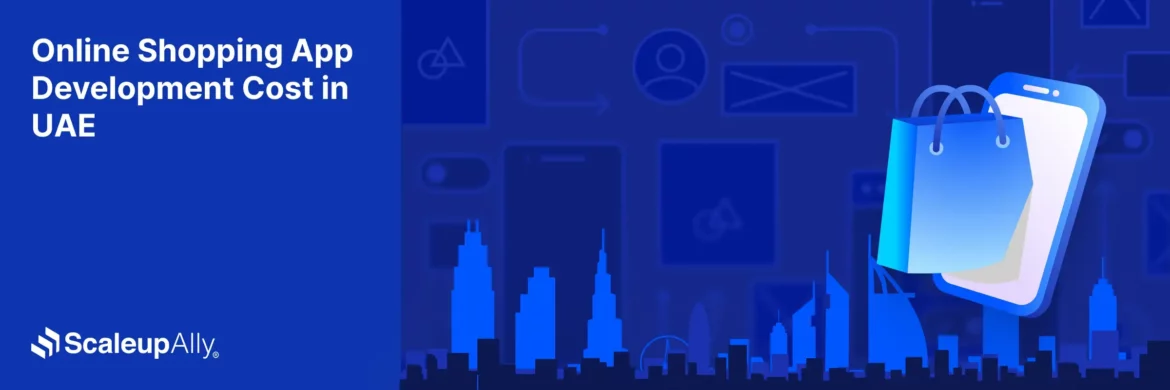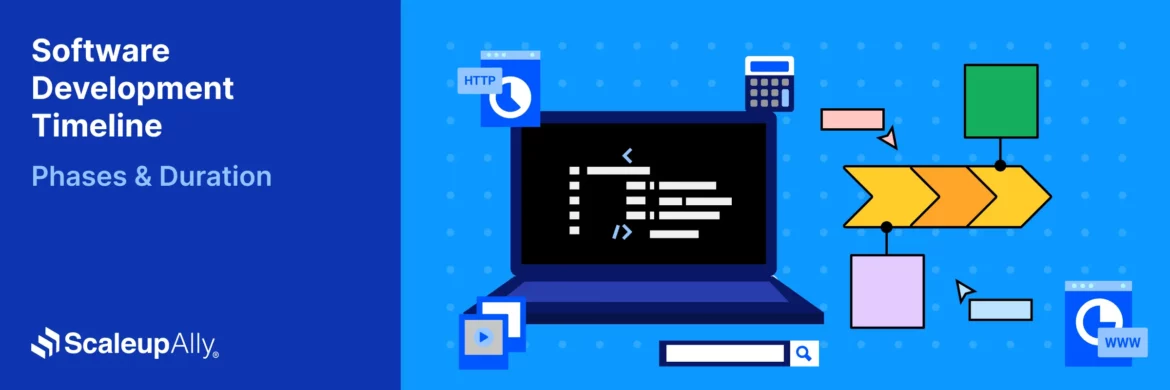
Custom Mobile App Development: A Comprehensive Guide For Businesses
Suprabhat Sen | May 11, 2024 , 23 min read
Table Of Content
Did you know mobile apps have become the primary way consumers interact with businesses? In fact, research shows that mobile users spend 88 percent of their time on apps when using their smartphones.
This trend has led to a surge in demand for custom mobile app development that caters to the user’s unique needs. Custom mobile apps offer several advantages over off-the-shelf solutions, including enhanced user experience, increased efficiency, and improved brand recognition.
In this comprehensive guide will explore custom mobile app development and how it can help businesses thrive.
Key Takeaways
- Custom mobile app development creates tailored applications for businesses, offering personalized features, scalability, and seamless integration, unlike off-the-shelf solutions that have limited customization.
- The benefits of custom mobile apps include enhanced user experience, improved brand recognition, a competitive advantage, and the ability to scale with business growth.
- There are various types of custom mobile apps, such as enterprise apps (internal use), consumer apps (customer-facing), hybrid apps (cross-platform), and web apps.
- The development process involves several key stages: discovery & planning, UI/UX design, development, testing, deployment, and ongoing maintenance, ensuring the app meets high performance, security, and usability standards.
- Custom mobile app costs range from $31,000 to over $200,000, depending on complexity, features, platform, and development team location, with ongoing maintenance and updates also contributing to long-term investment.
What is Custom Mobile App Development?
- What is Custom Mobile App Development?
- Benefits of Custom Mobile App Development
- Types of Custom Apps
- The Custom Mobile App Development Process
- Considerations for Building a Custom Mobile App
- Challenges in Developing Custom Mobile Apps
- How much does it cost to build a custom mobile app?
- Emerging Technologies in Custom Mobile Application Development
- How ScaleupAlly can help you build state-of-the-art custom apps
- Conclusion
- Frequently Asked Questions (FAQs)
Custom mobile app development is the process of creating mobile applications tailored to meet a specific business’s unique requirements.
Unlike off-the-shelf apps, designed for general use, custom mobile apps are developed with a particular organization’s needs in mind. They are designed to address specific business challenges and goals, with features and functionality tailored to meet the needs of the organization’s end customers.
This approach allows businesses to create a mobile app that is truly unique, providing them with a competitive advantage in the market.
Differentiation from Off-the-Shelf Solutions
One of the primary reasons businesses opt for custom mobile app development is the significant differentiation it offers from off-the-shelf solutions.
While off-the-shelf apps may seem convenient and cost-effective, they often fall short of meeting users’ needs.
In the table below, we’ll look at the key differences between custom mobile apps and off-the-shelf solutions, highlighting the advantages of choosing a tailored approach to mobile app development.
| Aspect | Custom Mobile App Development | Off-the-Shelf Solutions |
| Customization | Highly customizable to fit specific needs | Limited customization, often generic |
| Scalability | Easily scalable to accommodate future growth | Limited scalability, may require upgrades |
| Integration | It can be integrated with existing systems | It may require additional integration efforts |
| Performance | Optimized for specific requirements and performance | Performance may vary based on the provider |
| Security | Security measures can be tailored to specific needs | It relies on the provider’s security standards |
Benefits of Custom Mobile App Development

Let’s look at the benefits of custom mobile app development in detail, highlighting how businesses can leverage it to gain a competitive edge in the market.
1. Enhanced User Experience
Custom mobile apps are designed with a specific audience, allowing for a more personalized and engaging user experience. By tailoring the app’s features and functionality to the users’ needs, businesses can create an app that is intuitive and easy to use, leading to increased user engagement and adoption.
2. Improved Brand Recognition
Custom mobile apps can be designed with the organization’s branding and messaging in mind, leading to increased brand recognition and customer loyalty. Creating an app that reflects the organization’s values and mission allows businesses to establish a strong brand identity and stand out in a crowded market.
3. Competitive Advantage
Custom mobile apps offer a significant competitive advantage over off-the-shelf solutions. By tailoring the app’s features and functionality to the organization’s needs, they can differentiate themselves and offer a unique value proposition to their customers.
4. Scalability and Flexibility
Imagine your business initially started with a simple product catalog app to showcase your offerings. In the early days, you didn’t need a custom payment checkout because all transactions were handled offline or through a basic online store. However, as your business grows, you notice an increasing demand for a more seamless and personalized shopping experience within your app.
With a custom mobile app, you can easily add a custom payment checkout feature tailored to your specific needs. This can include integrating various payment gateways, supporting multiple currencies, offering one-click payments, and incorporating loyalty programs. Additionally, you can enhance the app’s functionality with features like order tracking, customer reviews, and personalized recommendations.
This flexibility allows your app to evolve alongside your business, ensuring that it continues to meet the changing needs and preferences of your customers without the need to invest in an entirely new solution. This scalability is one of the key advantages of opting for a custom mobile app.
Types of Custom Apps
Businesses can develop different types of custom mobile apps to meet their unique needs. Let’s explore these different types of custom mobile apps and how they can benefit businesses.
1. Enterprise Apps
Enterprise apps are custom mobile apps developed for internal use by an organization. They are designed to streamline business processes, increase efficiency, and improve employee communication. Enterprise apps can include features such as project management tools, inventory management systems, and HR management solutions.
A few such apps are Salesforce, Asana, and Dropbox.
2. Consumer Apps
Consumer apps are developed for external use by an organization’s customers. These apps are designed to improve customer engagement, enhance the user experience, and increase brand loyalty. Consumer apps can include features such as e-commerce functionality, loyalty programs, and customer support tools.
Social media platforms like Facebook, Instagram, and WhatsApp are examples of consumer apps.
3. Hybrid Apps
Hybrid apps are custom mobile apps that combine elements of both native and web-based apps. They are developed using web technologies such as HTML, CSS, and JavaScript but are packaged as native apps for distribution through app stores. Hybrid apps can offer the benefits of both native and web-based apps, including cross-platform compatibility and access to device-specific features.
4. Web Apps
Web apps are custom mobile apps accessed through a web browser rather than downloading them from app stores. They are developed using web technologies such as HTML, CSS, and JavaScript and are optimized for mobile devices.
Web apps offer customization, scalability, and flexibility, without the need for app store distribution.
A great example of a web app is the BMW App which was developed using Flutter, Google’s cross-platform framework, to provide a consistent user experience across platforms.
The Custom Mobile App Development Process
The custom mobile app development process is a comprehensive and iterative process that involves several stages. Let us explore the development process in detail:

Stage 1. Discovery and Planning
The first stage of the custom mobile app development process is discovery and planning. This involves a deep dive into the needs and objectives of the app. During this phase, stakeholders work together to identify the core problems the app will solve, the target audience, and the key features and functionalities that will drive its success.
- Market Research: Conduct thorough market research to understand the competition, market trends, and user expectations.
- Requirement Analysis: Gathering and documenting detailed business and technical requirements.
- Project Planning: Develop a comprehensive project plan that outlines the development process, timelines, milestones, and resources required. This plan serves as a roadmap for the entire project, ensuring all stakeholders are aligned and aware of the project scope and expectations.
Stage 2. Design
The design stage focuses on creating an intuitive and visually appealing user experience. This stage is critical as it sets the foundation for how users will interact with the app.
- Wireframing: Creating wireframes that outline the app’s structure and layout. Wireframes are basic sketches that map out the app’s functionality and navigation.
- Prototyping: Developing interactive prototypes that simulate the user experience. Prototypes help in identifying usability issues and gathering user feedback early in the design process.
- UI/UX Design: Crafting the user interface (UI) and user experience (UX) design. This includes selecting color schemes, typography, and graphics that align with the brand’s identity and enhance user engagement. The goal is to create an interface that is both aesthetically pleasing and easy to use.
Stage 3. Development
The development stage is where the app’s functionality is built and integrated with backend systems and third-party services. This stage involves several key activities:
- Coding: Writing the code for the app’s frontend and backend. This includes developing features, setting up databases, and integrating APIs.
- Integration: Connecting the app with backend systems, such as databases and servers, and integrating third-party services like payment gateways, analytics tools, and social media platforms.
- Testing and Debugging: Continuously testing the app during development to identify and fix bugs and issues. This ensures the app’s functionality is robust and reliable. Developers use various testing methods, including unit testing, integration testing, and system testing, to maintain high-quality standards.
Stage 4. Testing
The testing stage involves a comprehensive evaluation of the app to ensure it performs flawlessly under different conditions and meets all requirements.
- Functional Testing: Verifying that all features and functionalities work as intended. This includes testing user interactions, data handling, and integrations.
- Performance Testing: Assessing the app’s performance under various conditions, including load testing, stress testing, and response time testing, to ensure it is responsive and can handle high user traffic.
- Security Testing: Ensuring the app is secure and protected against vulnerabilities and attacks. This involves testing for data breaches, encryption, and secure authentication.
- Usability Testing: Gather feedback from real users to identify usability issues and ensure the app provides a seamless and intuitive user experience.
- Bug Fixing: Addressing any bugs, errors, or issues identified during testing to ensure the app is stable and reliable.
Stage 5. Deployment
Deployment involves releasing the app to the public and making it available for users to download and use.
- App Store Submission: Preparing the app for submission to app stores, such as the Apple App Store and Google Play Store. This includes creating app store listings, writing descriptions, taking screenshots, and ensuring the app meets all guidelines and requirements.
- Launch: Once approved, the app is launched, and users can download and install it. The launch phase may also include marketing and promotional activities to increase visibility and user adoption.
Stage 6. Maintenance
Ongoing maintenance is crucial to ensure the app remains up-to-date, and secure, and continues to meet user needs and business objectives.
- Regular Updates: Releasing updates to fix bugs, improve performance, and add new features. This ensures the app stays relevant and competitive.
- Monitoring and Analytics: Continuously monitoring the app’s performance and user feedback using analytics tools. This helps identify any issues or areas for improvement.
- Support: Providing customer support to address user queries, issues, and feedback promptly. This helps maintain a positive user experience and build user loyalty.
- Scalability: Planning for future growth and scalability, ensuring the app can handle increasing user loads and adapt to changing business needs.
By following these detailed stages, businesses can develop a custom mobile app that is not only high-quality and reliable but also flexible and scalable to accommodate future growth.
Considerations for Building a Custom Mobile App
Building a custom mobile app can be a significant investment for businesses in terms of time and money. Therefore, it is crucial to consider some essential factors before venturing into custom mobile app development.
1. Budget
One of the most important factors to consider is the budget for developing and maintaining a custom mobile app. The budget encompasses several aspects:
- Development Costs: These include expenses for hiring developers, designers, and project managers. Costs can vary significantly based on the complexity of the app, the number of features, and the geographic location of the development team.
- Design Costs: Investing in UI/UX design is crucial for creating an engaging and user-friendly app. This includes costs for wireframing, prototyping, and creating visual elements.
- Testing Costs: Thorough testing is essential to ensure the app functions correctly and is free of bugs. This includes costs for various types of testing such as functional, performance, security, and usability testing.
- Ongoing Maintenance Costs: After the app is launched, regular updates, bug fixes, and new feature implementations are necessary to keep the app relevant and functional. This also includes server maintenance, security updates, and customer support.
- Contingency Budget: It’s wise to allocate a contingency budget for unexpected expenses or scope changes during the development process.
2. Target Audience
Understanding the target audience is critical for the success of a custom mobile app. This involves:
- User Research: Conducting market research to gather insights about potential users’ demographics, preferences, and behaviors. Surveys, focus groups, and interviews can provide valuable data.
- User Personas: Creating detailed user personas to represent different segments of the target audience. These personas help in visualizing the end users and designing an app that caters to their needs.
- User Needs and Pain Points: Identifying the specific problems and needs of the target audience. This helps in developing features and functionalities that provide real value and solve user problems.
- User Journey Mapping: Mapping out the user journey to understand how users will interact with the app. This helps in designing a seamless and intuitive user experience.
3. Project Scope
Defining the project scope is essential to ensure the development team builds an app that aligns with the business’s requirements and goals. This involves:
- Purpose and Objectives: Clearly state the purpose of the app and the business objectives it aims to achieve. This provides a clear direction for the development process.
- Core Features and Functionalities: Listing the essential features and functionalities that the app must include. Prioritizing these features helps in managing the project scope and avoiding scope creep.
- User Experience (UX): Defining the desired user experience, including navigation flow, user interactions, and overall usability. This ensures the app is intuitive and user-friendly.
- Technical Requirements: Specifying the technical requirements, including platform (iOS, Android, or both), integration with backend systems, and third-party services.
- Milestones and Deliverables: Setting clear milestones and deliverables to track progress and ensure timely completion of the project.
4. Choosing the Right Development Team
Choosing the right mobile app development team is crucial to building a successful app. This involves:
- Expertise and Experience: Selecting a team with expertise in the specific type of app development required (native, hybrid, or web). The team should have a proven track record of developing successful apps in the business’s industry.
- Technical Skills: Ensuring the team possesses the necessary technical skills, including proficiency in relevant programming languages, frameworks, and tools.
- Portfolio and References: Reviewing the development team’s portfolio to assess their previous work. Checking references and client testimonials to gauge their reliability and quality of work.
- Communication and Collaboration: Choosing a team that communicates effectively and collaborates well. Regular updates, transparent communication, and a collaborative approach are essential for a smooth development process.
- Project Management: Ensuring the team has strong project management capabilities to handle timelines, resources, and deliverables efficiently.
- Post-Launch Support: Confirming that the development team offers post-launch support and maintenance services. This ensures the app remains up-to-date and any issues are promptly addressed.
By considering these factors, businesses can ensure a well-planned and executed custom mobile app development process, resulting in a high-quality, user-friendly, and successful app.
Challenges in Developing Custom Mobile Apps
Developing custom mobile apps is a complex and challenging process requiring significant time, effort, and resources. While custom mobile apps offer several advantages over off-the-shelf solutions, they also present unique challenges that businesses must overcome. Below are some of the most significant challenges in developing custom mobile apps.
1. Cost
Developing custom mobile apps requires significant resources, including time and money. Businesses must hire developers, UI/UX (User Interface/User Experience) designers, and other professionals to create a custom app that meets their needs. The cost of developing a custom mobile app can vary widely, depending on the app’s complexity, the number of features required, and the development platform used. To give you a clearer picture of potential custom mobile app development costs, here is an approximate pricing guide for different types of mobile applications:
| Industry | App Type | Approximate Cost Rane |
| Retail & E-commerce | Basic Shopping App | $30,000 – $80,000 |
| Advanced Shopping App | $80,000 – $200000 | |
| Healthcare | Basic Health Tracker App | $40,000 – $100,000 |
| Advanced Telemedicine App | $100,000 – $250,000 | |
| Finance & Banking | Simple Banking App | $50,000 – $120,000 |
| Comprehensive Banking App | $120,000 – $300,000 | |
| Education & E-learning | Basic Education App | $40,000 – $90,000 |
| Advanced E-learning Platform | $90,000 – $200,000 | |
| Entertainment | Simple Streaming App | $50,000 – $120,000 |
| Advanced Streaming App | $120,000 – $300,000 | |
| Real Estate | Basic Property Listing App | $40,000 – $100,000 |
| Advanced Real Estate Platform | $100,000 – $250,000 | |
| Logistics & Transportation | Basic Fleet Management App | $40,000 – $100,000 |
| Advanced Logistics Platform | $100,000 – $250,000 |
These figures are approximate estimates based on various factors, including the complexity of the custom mobile app, the geographic location of the development team, and the specific feature sets.
2. Technical Complexity
Creating custom mobile apps is a technically complex process that requires expertise in multiple areas. Developers must deeply understand programming languages, mobile app development frameworks, and user interface design principles. They must also be familiar with mobile device hardware and software specifications and security and data protection requirements.
3. User Experience
User experience is a critical aspect of custom mobile app development. Businesses must create apps that are intuitive and easy to use, with features and functionality that meet the needs of their target audience. Achieving a seamless user experience requires a deep understanding of user behavior and the ability to design and develop interfaces that are visually appealing and easy to navigate.
4. Integration
Custom mobile apps must often integrate with existing systems and databases, which can be complex and challenging. Developers must ensure the app can communicate with other systems and databases while maintaining data integrity and security.
5. Testing and Quality Assurance
Developing custom mobile apps requires rigorous testing and quality assurance processes to meet the highest quality standards. This includes testing the app on various devices and operating systems and identifying and fixing any bugs or issues arising during development.
How much does it cost to build a custom mobile app?
The cost of building a custom mobile app can vary depending on several factors, such as the app’s complexity, the number of features required, the platform(s) it will be developed for, and the development team’s location and experience level.
On average, building a custom mobile app can range from $31,000 to $200,000 or more.
However, it is essential to remember that the cost of building a mobile app is an investment that can yield significant returns for businesses.
It is recommended that you hire a reputable and experienced development team to ensure that the app meets the highest quality standards and delivers the desired results within the business’s budget. At the same time, calculate your custom app development cost to establish a realistic budget before reaching out to potential vendors.
Cost Breakdown of Developing a Custom Mobile App
| Cost Component | Description | Estimated Cost |
| Planning | Requirements gathering, project planning, and initial design | $2,000 – $10,000 |
| Design | User interface (UI) and user experience (UX) design | $5,000 – $30,000 |
| Development | Front-end and back-end development, database setup, and integration | $15,000 – $100,000+ |
| Testing | Quality assurance (QA) testing, debugging, and performance testing | $3,000 – $20,000 |
| Deployment | Publishing the app to app stores, configuration, and launch activities | $1,000 – $5,000 |
| Maintenance | Ongoing updates, bug fixes, and technical support | $5,000 – $50,000+ per year |
| Total | $31,000 – $225,000+ |
These costs can vary significantly based on the app’s complexity, the development team’s charges, and other factors.
Emerging Technologies in Custom Mobile Application Development
Custom mobile application development is a rapidly evolving field constantly influenced by emerging technologies. These technologies continually shape how custom mobile apps are designed, developed, and deployed.
In this context, businesses need to stay up-to-date with the latest technologies that can help them gain a competitive edge in the market.
Here are some of the emerging technologies that are shaping the app development industry:
1. Artificial Intelligence (AI)
AI has the potential to revolutionize custom mobile app development by enabling personalized user experiences. AI-powered chatbots, for instance, can be integrated into custom mobile apps to provide automated customer support, personalized recommendations, and real-time assistance. AI algorithms can also analyze user behavior and provide personalized content, enhancing the overall user experience.
2. Internet of Things (IoT)
The IoT refers to the network of connected devices that can communicate and exchange data with each other. Custom mobile apps can be integrated with IoT devices to provide real-time data to users. For instance, a custom mobile app can be developed for a smart home that allows users to control their home appliances remotely. IoT-enabled custom mobile apps can also be used in industrial settings for asset tracking, inventory management, and predictive maintenance.
3. Blockchain
Blockchain technology can potentially enhance the security and privacy of custom mobile apps. By leveraging blockchain, custom mobile apps can provide secure and transparent transactions, identity management, and data storage. Blockchain-enabled custom mobile apps can be used in industries such as finance, healthcare, and logistics, where data security is of utmost importance.
4. Augmented Reality (AR) and Virtual Reality (VR)
AR and VR technologies are transforming the way custom mobile apps are designed and developed. AR and VR-powered custom mobile apps can provide immersive experiences for users, enabling them to interact with digital content in real-time. For instance, a custom mobile app can be developed for a furniture store that allows users to visualize how a piece of furniture would look in their home using AR or VR technology.
How ScaleupAlly can help you build state-of-the-art custom apps
Are you ready to elevate your business with a state-of-the-art custom app? Look no further than ScaleupAlly! We are not just an engineering team; we are your partners in innovation, dedicated to bringing your vision to life.
Imagine having an app that is tailor-made to suit your unique business needs, perfectly built to enhance user experience and boost productivity. With ScaleupAlly, this vision can become a reality. Our team of over 50+ mobile engineers is equipped with the expertise and creativity to turn your ideas into cutting-edge solutions.
What sets ScaleupAlly apart is our commitment to excellence. We don’t just build apps; we create experiences. From concept to deployment, we work closely with you to ensure that every detail is perfect. Our agile development process ensures that your app is delivered on time and within your allocated budget without compromising quality.
But our partnership doesn’t end there. We provide ongoing support and maintenance to ensure your app remains at the forefront of technology. With ScaleupAlly by your side, you can rest assured that your app is in good hands.
Don’t just dream about your business’s future; make it a reality with ScaleupAlly. Contact us today, and let’s build something amazing together.
Conclusion
Investing in custom mobile app development has become vital for businesses looking to stay competitive. By tailoring their mobile apps to meet their users’ unique needs, organizations can provide customers with a more engaging and personalized experience, establish a strong brand identity, and gain a significant competitive advantage.
With enhanced user experience, improved brand recognition, competitive advantage, scalability, and flexibility, custom mobile apps are undoubtedly an excellent investment for any business looking to thrive in the digital age.
Frequently Asked Questions (FAQs)
Q: How long does it take to build a custom mobile app?
The time it takes to build a custom mobile app can vary widely depending on its complexity, the number of features, and the development approach. Simple apps may take a few months, while more complex apps can take 6 months to a year or more.
Q: What features should I include in my custom mobile app?
The features you should include in your custom mobile app depend on your business goals and target audience. It’s important to focus on features that provide value to users and differentiate your app from competitors.
Q: How can I ensure my custom mobile app stands out from the competition?
To ensure your custom mobile app stands out, focus on providing a unique value proposition, creating a seamless user experience, and regularly updating your app with new features and improvements based on user feedback.
Q: How do I choose between developing for iOS, Android, or cross-platform?
The choice between developing for iOS, Android, or cross-platform depends on your target audience, budget, and timeline. Developing for both iOS and Android allows you to reach a wider audience, while cross-platform development can be more cost-effective with a faster time to market.
Q: Do I need to own the code for my custom mobile app?
It’s important to own the code for your custom mobile app to have full control over its development, maintenance, and future updates. Ensure that your development agreement includes provisions for code ownership and access.
Q: How can I ensure the security and privacy of my custom mobile app?
To ensure the security and privacy of your custom mobile app, follow best practices such as encrypting sensitive data, implementing secure authentication methods, and regularly updating your app with security patches. Conduct regular security audits and tests to identify and mitigate vulnerabilities.
Related Blogs

Top 20 Emerging Technologies of 2026
Discover the top 20 emerging technologies of 2026. Explore which innovations are driving change across healthcare, finance, manufacturing, and other crucial industries.
ScaleupAlly Team
Dec 16 ,
9 min read

Online Shopping App Development Cost in UAE | Pricing & Factors Explained
Understand UAE online shopping app development costs in 2025 with pricing ranges, influencing factors, hidden fees, timeframes, and expert savings tips.
Suprabhat Sen
Nov 29 ,
13 min read

Software Development Timeline: Phases, Duration & Estimation Guide
Understand the software development timeline with phase durations, key factors, hidden delays, and practical methods to estimate project time.
Suprabhat Sen
Nov 29 ,
16 min read



